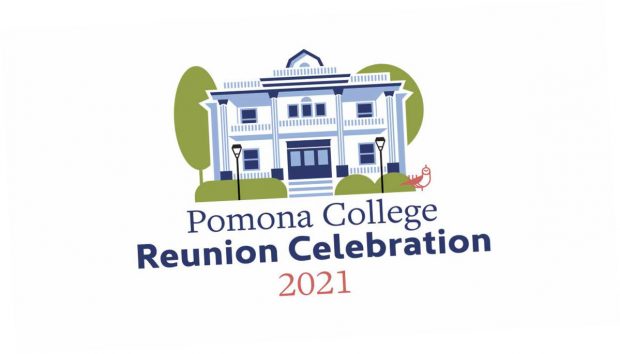Remembering
Bill Wirtz
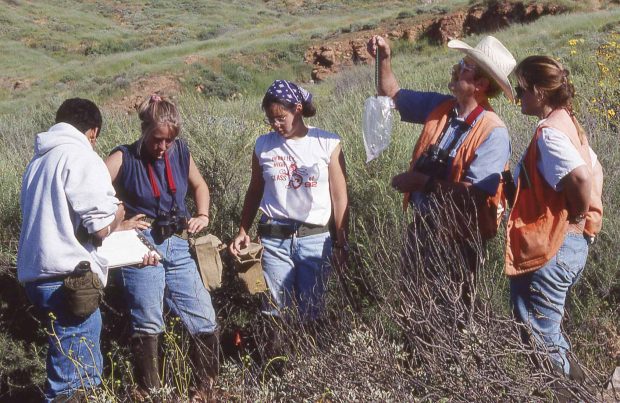
Professor Bill Wirtz leading an animal-trapping
expedition with students at Marine Corp Base Camp Pendleton near San Diego. —Photo by Helen Wirtz
We would like to recognize the legacy of Emeritus Professor William “Bill” Wirtz, who recently passed away in Norco, California, at 83 years old. Bill provided invaluable experience-based learning to generations of Pomona College students that brought the natural world into focus for all and inspired many of us to continue on in biology and ecology careers.
Many of us fondly remember Bill’s ecology course that included overnight trips to the Granite Mountains (to study desert ecosystems) and the Pitt Ranch (oak woodland/grasslands) and day trips to the San Gabriel Mountains (chaparral and coastal sage scrub communities). Bill was in his element with students in the field. He had a seemingly infinite knowledge of the natural history of mammals, birds, reptiles and plants and how they all fit together in an ecological community. Bill’s infectious enthusiasm and passion for biology made us eager to learn more. His vertebrate biology course featured infamous exams that required students to identify the bones of elephants, seals, snakes and birds and discuss their evolution across taxonomic groups.
Some of us were lucky enough to work for Bill as teaching assistants in the laboratory or as research assistants in the field. These experiences did two things simultaneously. First, Bill taught us how to “do” science, which formed our foundation in biological theories and methods. Second, his guidance inspired us to ask our own questions about nature and humanity’s relationship with it. Bill’s kind and patient mentorship motivated many of us to pursue careers as academics and practitioners, passing on his legacy to new generations.
Bill formed deep friendships with many students that lasted a lifetime. He sometimes referred to us as his academic “kids.” When we checked in with stories from our professional lives, we could feel his pride in our accomplishments. We also knew we could turn to Bill anytime for mentorship and advice.
Bill was a treasured friend and an engaged community member, dedicating his time to a number of endeavors, including fire rescue, the Audubon Society and animal welfare through the Humane Society. His endless passion for biology continues to live on in the work of his students. Bill will be sorely missed and fondly remembered.
—Tania Abdul ‘95, director of Breathe, United for Racial and Environmental Justice
Joel Brown ’80, distinguished professor emeritus, biological sciences, University of Illinois – Chicago
Susan Burr ’91, vice president, AECOS Inc.
Scott Fujimoto ’94, public health medical officer, California Department of Public Health
Julie Hagelin ’92, senior research scientist, Institute of Arctic Biology, University of Alaska, Fairbanks
Greta Hardin ’94, forest lands manager
Brian Hudgens ’92, vice president and senior research ecologist, Institute for Wildlife Studies
Glennis Julian ’92, research technician, Butterfly Genetics Lab, University of Cambridge
Roger Lai ’94, senior product manager, 8×8 Inc.
Brad Lamphere ’93, assistant professor of biological sciences, University of Mary Washington
Audrey Mayer ’94, professor of ecology and environmental policy, Michigan Technological University
Jen Perga ’91, teacher (environmental science), Northwestern Regional High School
Terry Sicular ’76, professor
Gillian Thackray ’92, Thermo Fisher Scientific, chief counsel for IP
John Withey ’91, director & faculty, Master of Environmental Studies Program, Evergreen State College
Clint S. Wright ‘91, emeritus scientist, U.S. Forest Service
A memory of
Ved Mehta
One of my paying jobs during my first year, 1952–53, was serving as Ved Mehta’s reader in biology, a course in which I was also a student. Three nights a week, I sat with him and read the text and tried to explain the diagrams. The diagrams were difficult for us, as Ved was blind. One Sunday night, the devil was in me, and I suggested that instead of reading biology, we walk into town for a coffee at the only place open on a Sunday night, the Sugar Bowl. We did so, and for that night biology took the hindmost.
Perhaps 20 years later, I was leaving a club on W. 43rd St. in New York after lunch just as Ved was leaving his club next door. To my astonishment, when I spoke to him he recognized my voice as the biology reader. We talked for a few minutes, and then went our ways.
At our 50th reunion in 2006, discovering that we were going to cross campus to another event, Ved suggested we walk together, and I remembered his preference for subtle guidance by a touch to his elbows.
It became clear that he retained a strong mental map of the campus as it was, for he paused, concerned, before a place at which a building in our time now no longer existed (Harwood Hall, a World War II wood dungeon, for example) and had no idea of what lay beyond 6th Street.
During our stroll, I decided to unburden myself of the guilt I had sometimes felt for taking Ved away from his studies on that Sunday night. He said, with great sincerity, “Oh no, Doug, I will always remember it. It was the first time anyone had suggested that they wanted to do something with me.”
For the record, I must have been an excellent teacher, for Ved always scored above me on biology exams.
—Douglas K. Candland ’56
Lewisburg, Pennsylvania.
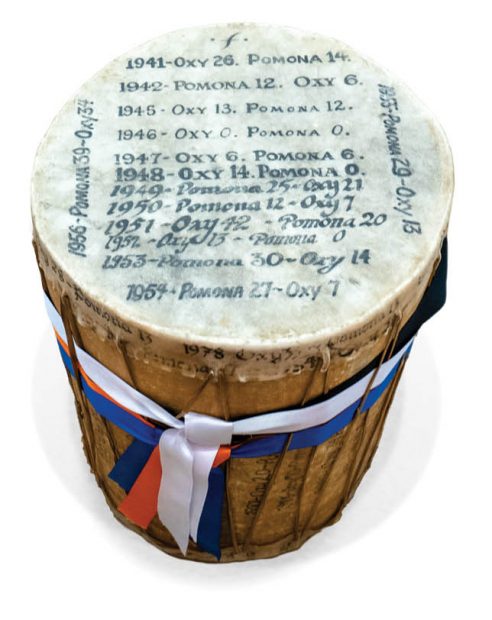



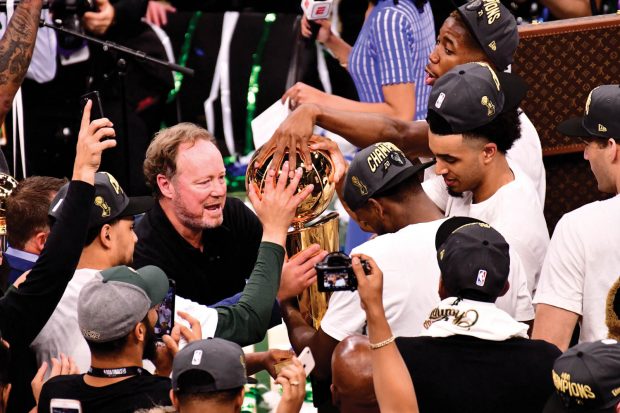
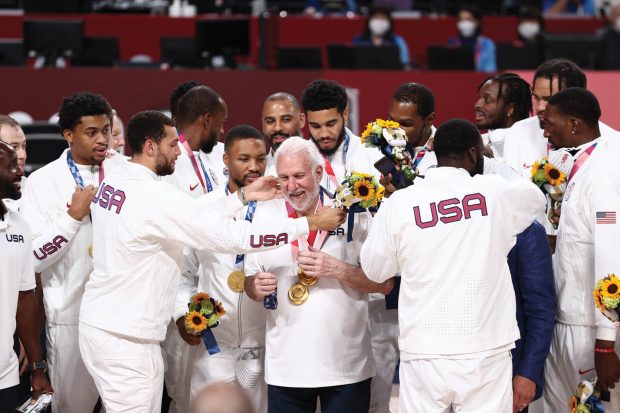
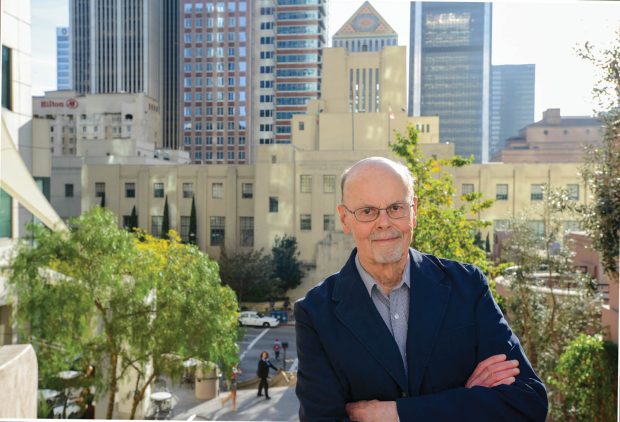 Robert Dunton Herman ’51, emeritus professor of sociology and author of the definitive downtown Los Angeles walking guide, died April 9 of complications following a recent fall. He was 92.
Robert Dunton Herman ’51, emeritus professor of sociology and author of the definitive downtown Los Angeles walking guide, died April 9 of complications following a recent fall. He was 92.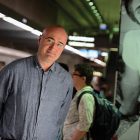
 Moving people from point A to point B is a must. But horses and buggies are long gone, an ever-increasing number of vehicles are packing (or are they parked?) the freeways and teleporting is still a way off.
Moving people from point A to point B is a must. But horses and buggies are long gone, an ever-increasing number of vehicles are packing (or are they parked?) the freeways and teleporting is still a way off.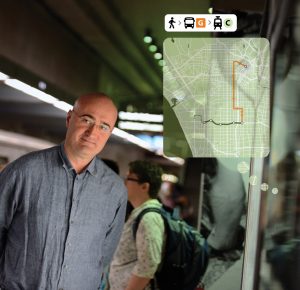
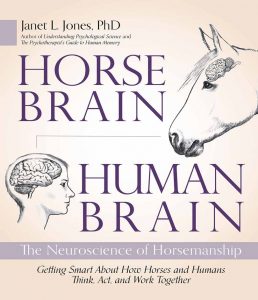 Horse Brain, Human Brain
Horse Brain, Human Brain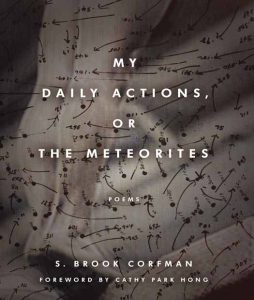 My Daily Actions, or The Meteorites
My Daily Actions, or The Meteorites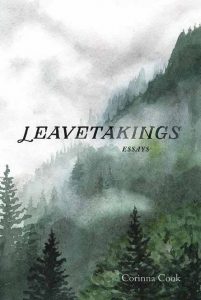 Leavetakings
Leavetakings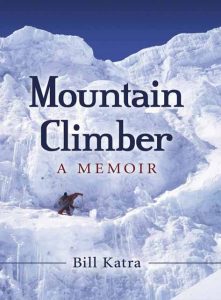 Mountain Climber
Mountain Climber ASPC Manual of Preventive Cardiology
ASPC Manual of Preventive Cardiology 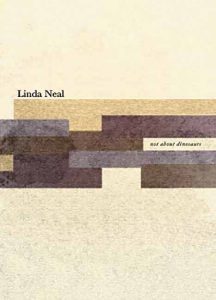 Not About Dinosaurs
Not About Dinosaurs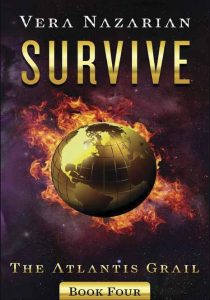 Survive
Survive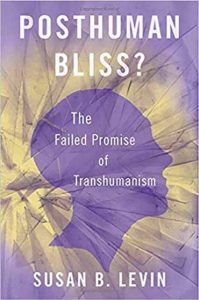 Posthuman Bliss?
Posthuman Bliss?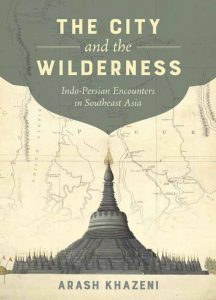 The City and the Wilderness
The City and the Wilderness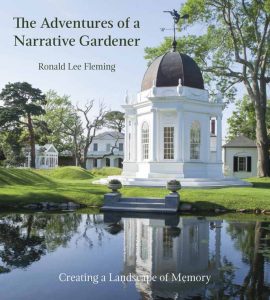 The Adventures of a Narrative Gardener:
The Adventures of a Narrative Gardener:
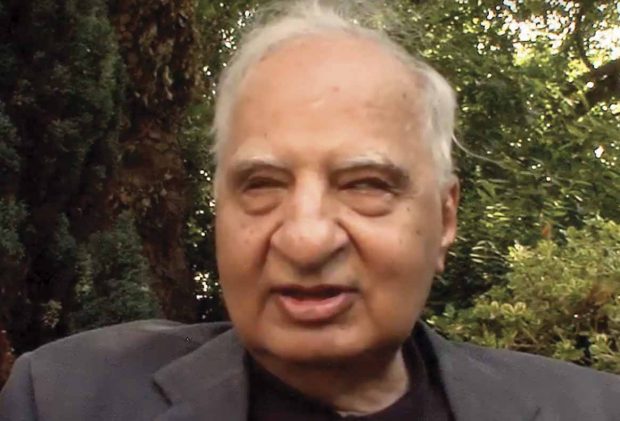
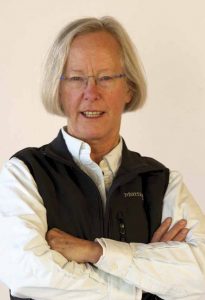 Cathy Corison ’75 was the first woman winemaker-proprietor in the Napa Valley, where she continues to produce handcrafted wines without compromise. Her grapes are sourced from some of the finest vineyards in the Napa Valley, all located on classic benchland between Rutherford and St. Helena. Corison’s vineyards are certified Napa Green. She has farmed organically for more than 25 years, with sustainability as a core value. She founded Corison Winery in 1987, guided by her belief that winemaking and wine appreciation are a timeless, creative celebration of life.
Cathy Corison ’75 was the first woman winemaker-proprietor in the Napa Valley, where she continues to produce handcrafted wines without compromise. Her grapes are sourced from some of the finest vineyards in the Napa Valley, all located on classic benchland between Rutherford and St. Helena. Corison’s vineyards are certified Napa Green. She has farmed organically for more than 25 years, with sustainability as a core value. She founded Corison Winery in 1987, guided by her belief that winemaking and wine appreciation are a timeless, creative celebration of life.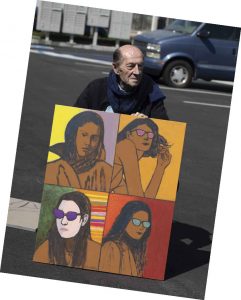 James Strombotne ’56 is a painter whose work has been featured in more than 100 one-man shows, with 14 retrospectives: four in New York City, 22 in Los Angeles, and others in San Francisco, Washington D.C., Santa Barbara, Newport Beach and Santa Fe, New Mexico, among other venues. His work has also been included in most major group shows in America and can be found in the permanent collections of museums across the United States. He is a professor emeritus at UC Riverside following his retirement in 2005 after 40 years of teaching.
James Strombotne ’56 is a painter whose work has been featured in more than 100 one-man shows, with 14 retrospectives: four in New York City, 22 in Los Angeles, and others in San Francisco, Washington D.C., Santa Barbara, Newport Beach and Santa Fe, New Mexico, among other venues. His work has also been included in most major group shows in America and can be found in the permanent collections of museums across the United States. He is a professor emeritus at UC Riverside following his retirement in 2005 after 40 years of teaching.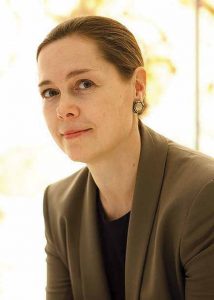 Martina Vandenberg ’90 is the founder and president of The Human Trafficking Legal Center, which she established in 2012 with support from the Open Society Foundations Fellowship Program. For more than two decades, she has worked to fight human trafficking, forced labor and violence against women and establish that rape is a war crime. Vandenberg has trained more than 4,000 pro bono attorneys nationwide to handle human trafficking matters. She has testified before multiple House and Senate Committees, gave the keynote address at the first NATO ambassadorial-level conference on human trafficking in Brussels and currently co-chairs the D.C. Human Trafficking Task Force’s Forced Labor Subcommittee.
Martina Vandenberg ’90 is the founder and president of The Human Trafficking Legal Center, which she established in 2012 with support from the Open Society Foundations Fellowship Program. For more than two decades, she has worked to fight human trafficking, forced labor and violence against women and establish that rape is a war crime. Vandenberg has trained more than 4,000 pro bono attorneys nationwide to handle human trafficking matters. She has testified before multiple House and Senate Committees, gave the keynote address at the first NATO ambassadorial-level conference on human trafficking in Brussels and currently co-chairs the D.C. Human Trafficking Task Force’s Forced Labor Subcommittee.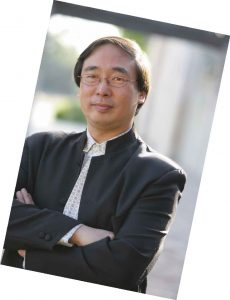 Nathan Wang ’79 is one of the most successful composers in Hollywood and Asian cinema. Prolific and versatile, he has written music for Jackie Chan movies, Steven Spielberg documentaries and Disney, DreamWorks, Warner Bros. and Sony Pictures Studios’ films. His compositions have been performed by the Los Angeles Philharmonic, Shanghai Philharmonic, San Francisco Symphony, Los Angeles Opera and the Chicago Symphony Orchestra. He received a Singapore Grammy for Best Arrangement of a Song and an Emmy for the award-winning film Reefer Madness. Wang is an associate professor of film scoring at Beijing University.
Nathan Wang ’79 is one of the most successful composers in Hollywood and Asian cinema. Prolific and versatile, he has written music for Jackie Chan movies, Steven Spielberg documentaries and Disney, DreamWorks, Warner Bros. and Sony Pictures Studios’ films. His compositions have been performed by the Los Angeles Philharmonic, Shanghai Philharmonic, San Francisco Symphony, Los Angeles Opera and the Chicago Symphony Orchestra. He received a Singapore Grammy for Best Arrangement of a Song and an Emmy for the award-winning film Reefer Madness. Wang is an associate professor of film scoring at Beijing University.
